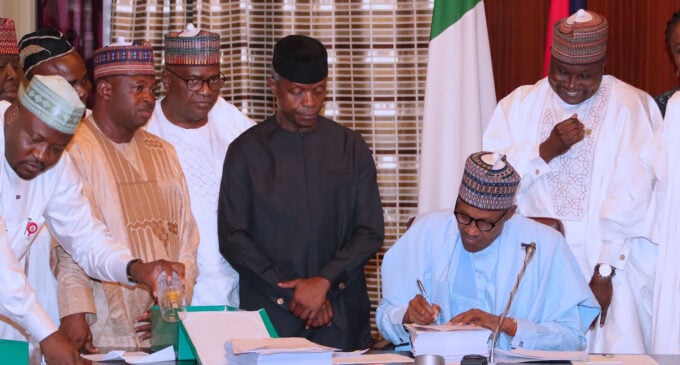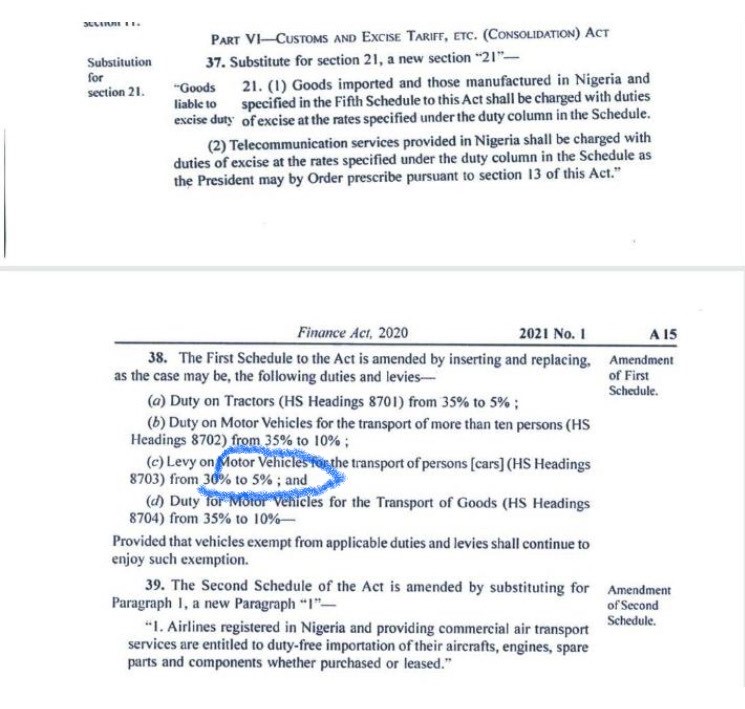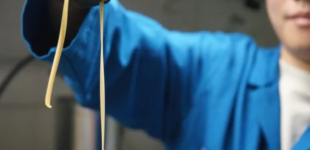SPOTTED: 30% or 35% car import levy? — embarrassing error in the new finance law

An error has been spotted in the new finance bill signed into law by President Muhammadu Buhari on December 31, 2020. The signed bill was published in the Federal Republic of Nigeria Official Gazette No. 4 Vol. 108 of January 4, 2021.
Section 38(c) of the Finance Act 2020 provides a reduction in import “levy on motor vehicles for the transport of persons [cars] (HS Headings 8703) from 30% to 5%.” The section is an amendment of the customs and excise tariff, etc. (consolidation) act.
Contrary to the content of the signed finance bill, Zainab Ahmed, minister of finance, budget and national planning in an interview with ChannelsTV on January 22, 2021, said the import levy of cars was reduced from 35% to 5%.
“For cars, the import duty is still 35 percent, what has been reduced is the levy from 35percent to 5percent, so there is still an import duty and levy of 40 percent on cars, and this is still the highest within the region,” she had said.
“For tractors, mass transit vehicles, the change was from 35 percent to 5 percent and 10 percent respectively, and for trucks for movement of goods from 35 percent to 10 percent as well.
“So, it’s not a blanket removal, and then we remove the levies as well but the import duties are still there for all of the classes of the vehicles except that they are there at a reduced rate.”
Finance minister says 35%, finance law says 30% — but what’s the reality?

POOR LEGAL DRAFTSMANSHIP
Speaking with TheCable, Ademola Owolabi, a lawyer, said the error “does not speak well of legal draftsmanship in the country.”
He lamented that this could occur despite the existence of several human resources that are being paid at the national assembly, ministry of justice, as well as legislative aides to the president, who have all failed in execution of their duty.
“However, the important thing is that there is no confusion as to what it was reduced to which is 5%. The proper thing is for an amendment to be introduced either by the executive or the legislature itself to correct the error. It is a poor error,” he added.
“I look at law as an instrument of reform and not a fossilized stuff. There would have been a confusion if the two sections speak of different figures with respect to what it was reduced to.
“Although, it throws open the question of having an eye on the detail, paying attention and the reward system. I just hope the people that made this mistake would not be rewarded with ambassadorial offices/postings!”
He noted that pending the time when an amendment is effected, the implementation of the reduced import levy by the NCS will not be affected.
BACKGROUND ON TARIFF HIKE
In 2013, the Goodluck Jonathan administration introduced a policy, known as the Nigerian Automotive Industry Development Plan (NAIDP) to encourage local manufacturing of motor vehicles, thereby boosting the economy.
The policy imposed 35% import duty and another 35% import levy on imported cars. The NCS commenced implementation of the new tariff scheme.
It is noteworthy that the import levy only applies to new cars. Used cars, better known as tokunbo cars, do not attract a levy.
AWAITING IMPLEMENTATION FOR OVER A MONTH
Although the law became effective on January 1, 2021, the lowered levy has not been implemented.
Hameed Ali, comptroller-general of the Nigeria Customs Service (NCS), said the service has received directive for implementation from the finance ministry.
“The act has been transmitted to us. We received the minister’s mandate this week, to start working on it, although we have to develop certain regulations and measures on how we intend to implement the law,” he said.
Although the old rates are still applicable, he assured that it would change “by next week or next two weeks.”
A HISTORY OF TYPOS
In 2015, the Nigerian Communication Commission (NCC) made a multi billion naira typing error when announcing a reduction in a massive fine imposed on MTN for failing to disconnect 5.1 million unregistered SIM cards.
The telecom regulator initially cut MTN’s N1.04 trillion fine by 35 percent, to N674 billion. It later said it intended to reduce the fine by only 25 percent to N780 billion.
Similarly, the National Pension Commission (PenCom) is proposing amendments to the Pension Reform Act of 2014, as it seeks to correct mathematical errors and typos in the law.
FINANCE MINISTRY CONFIRMS ERROR
When asked to speak about the irregularity in the law, Yunusa Abdullahi, special adviser on media and communications to Zainab Ahmed, minister of finance, budget and national planning, told TheCable that he would check his own copy of the law and make his findings known.
“It is 35%. There must be an error,” he added.
Afterwards, in a WhatsApp message, Abdullahi said the matter can only be handled by the technical department.
“The technical department deals with all issues of tax and levies so it’s their opinion that count not mine. They will send a response to the enquiry you made and I will revert to you,” he said.
He subsequently told TheCable that the levy is 35% and anything different must be a “typo”.















There are no comments at the moment, do you want to add one?
Write a comment